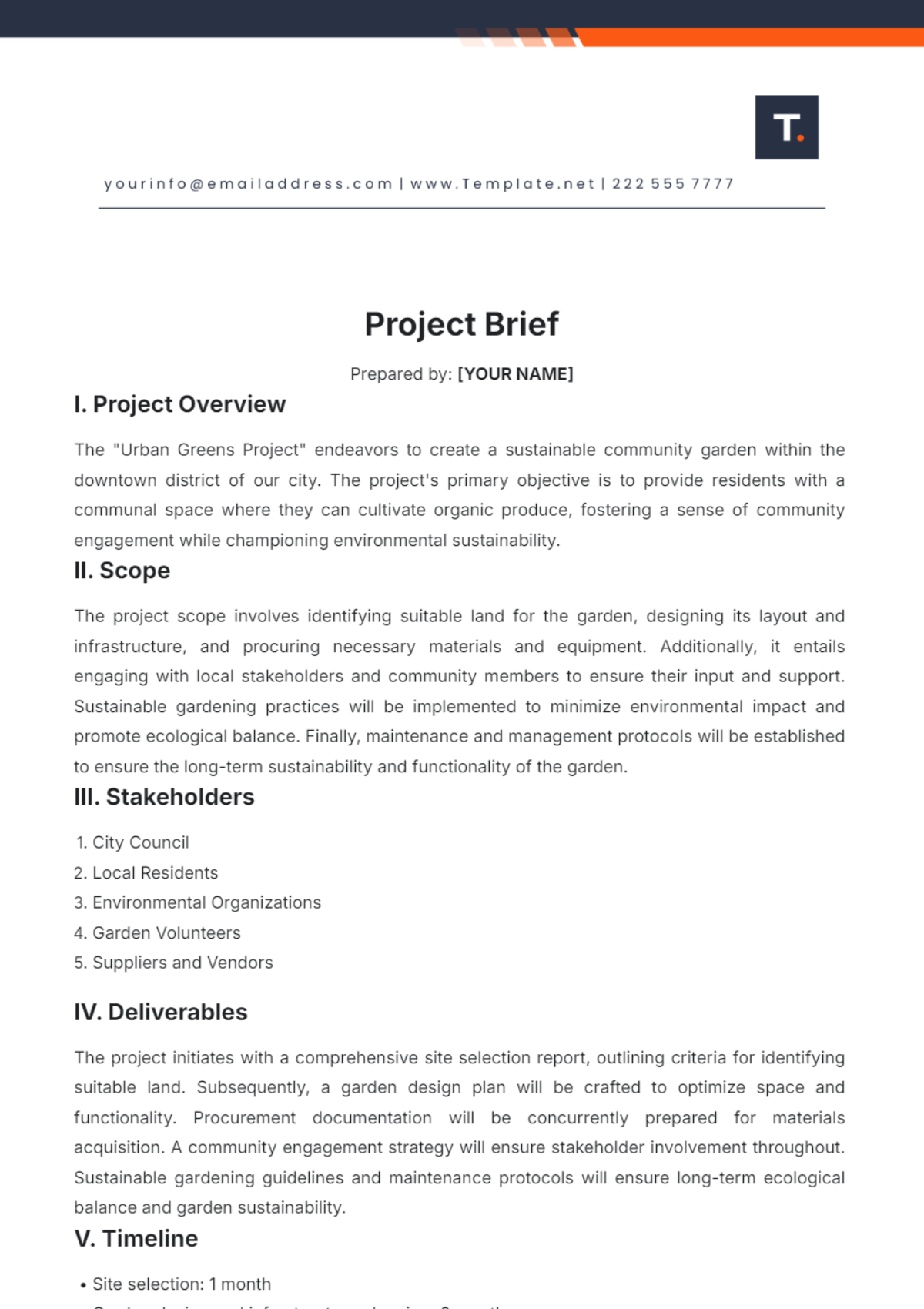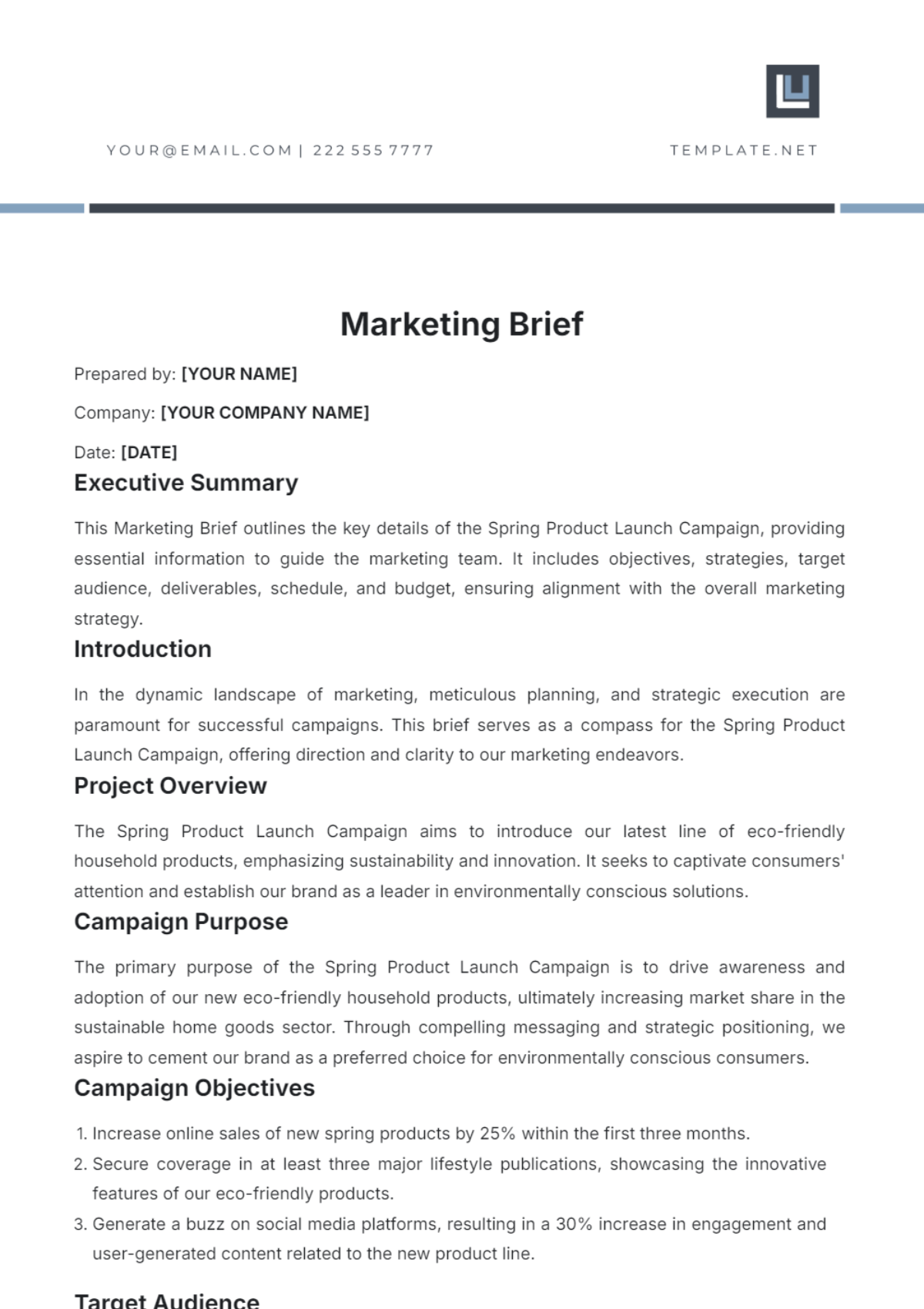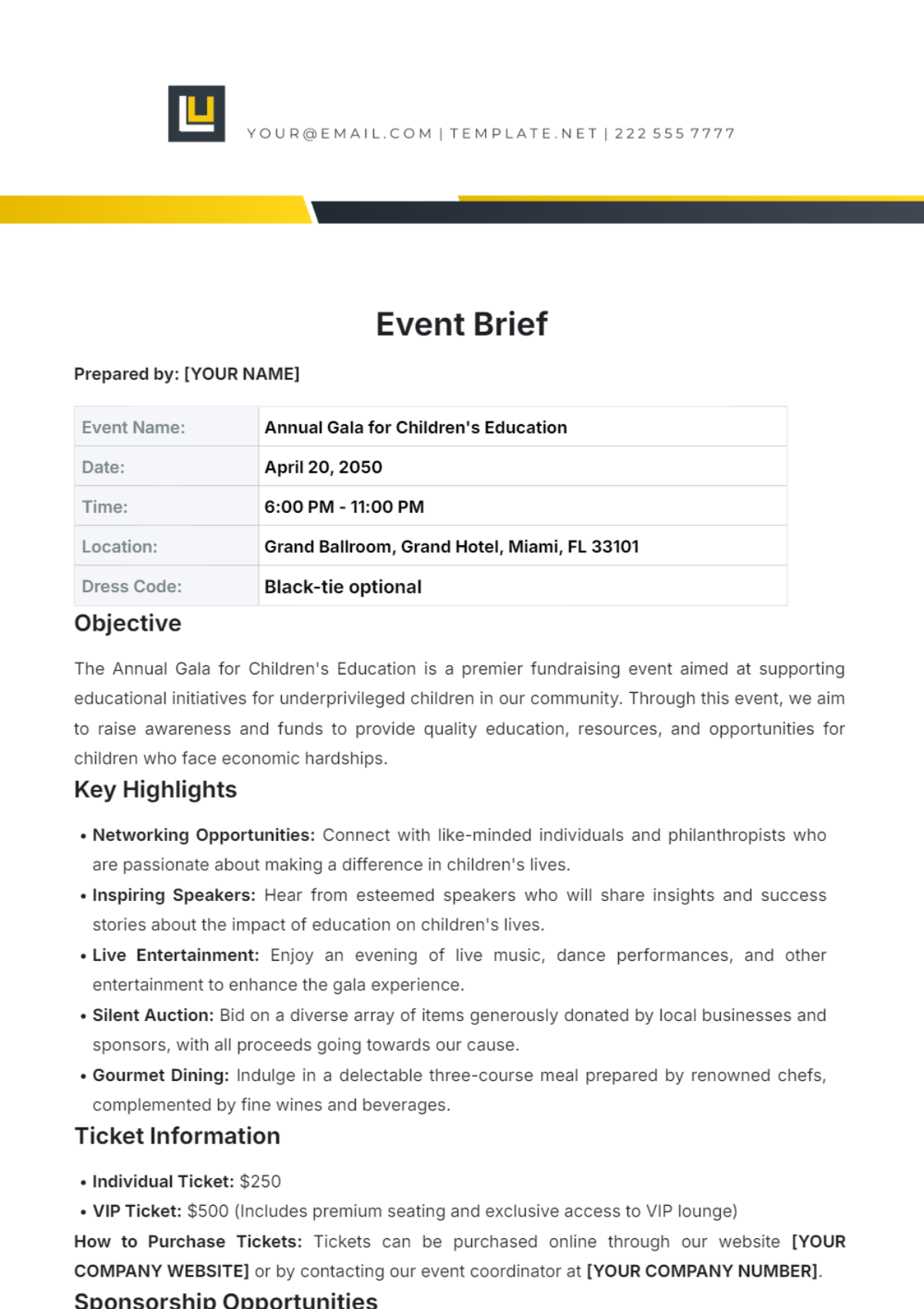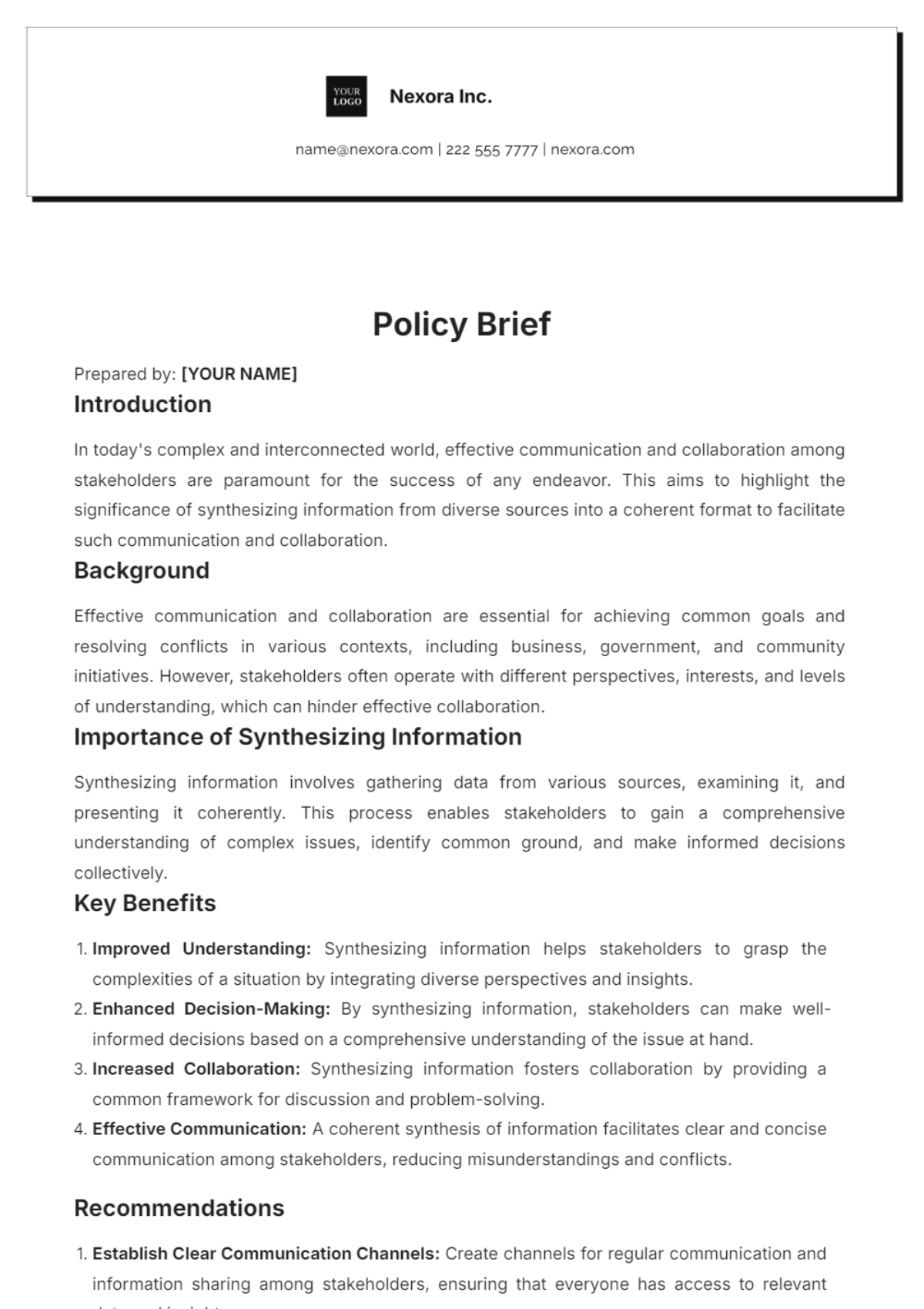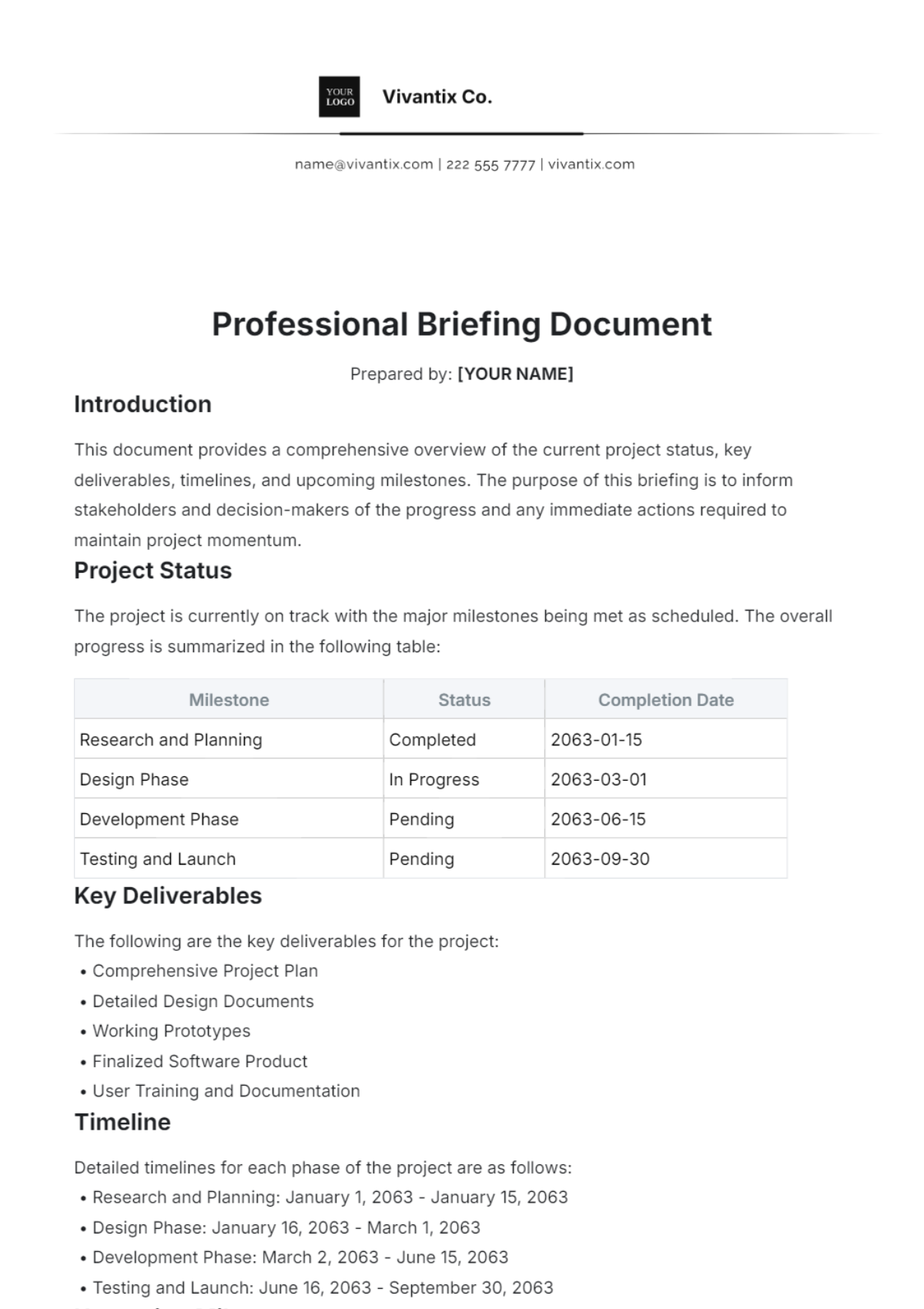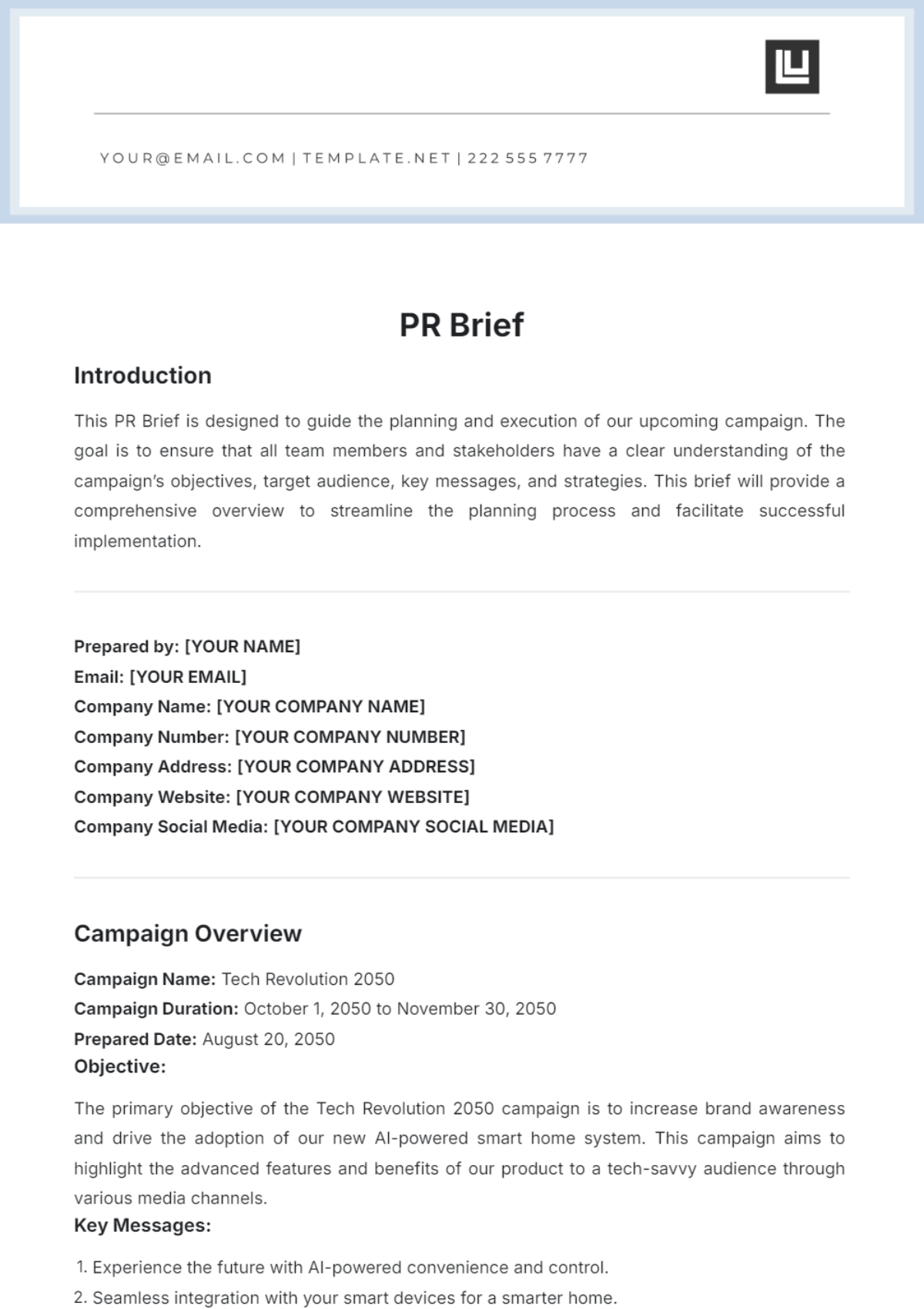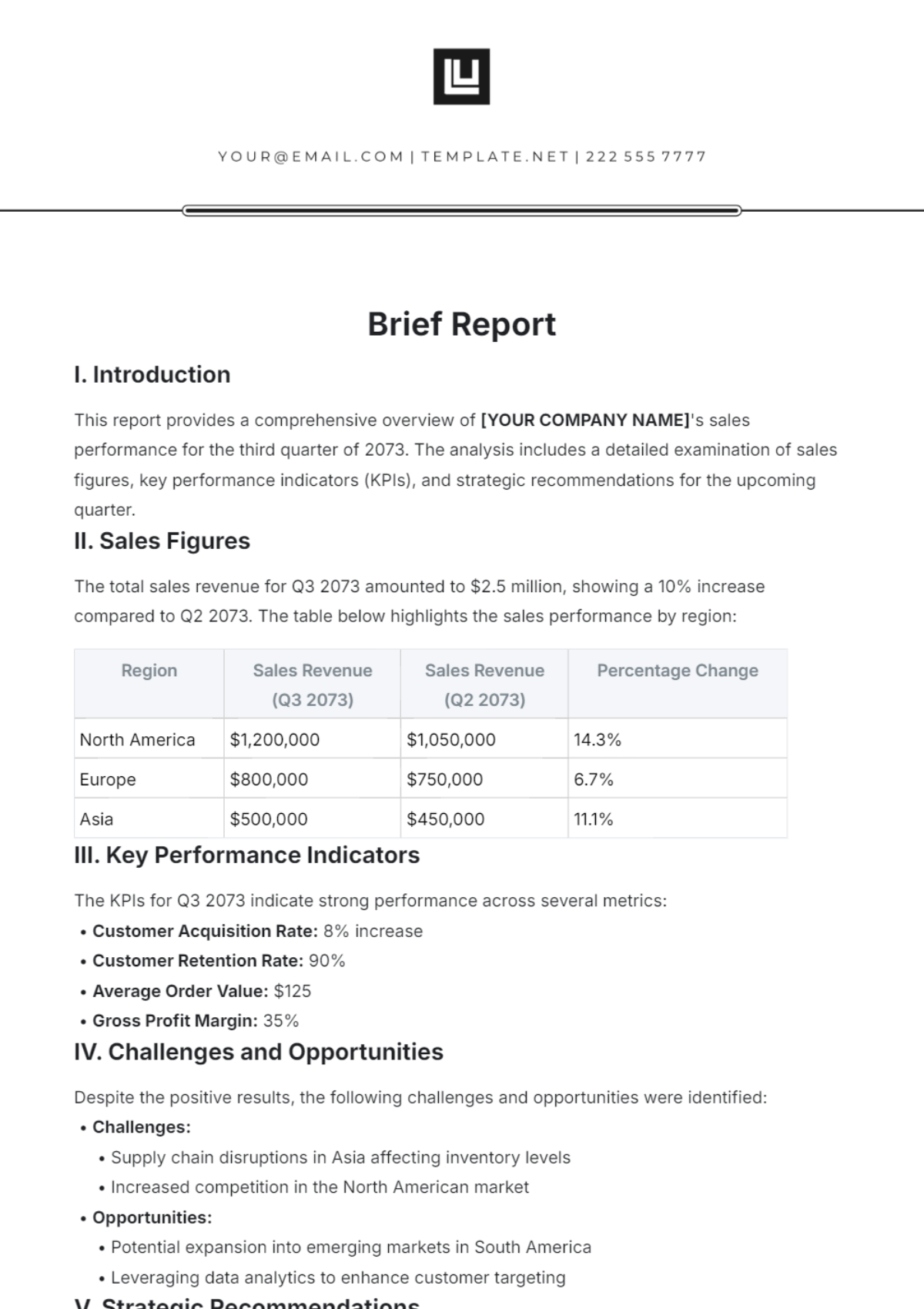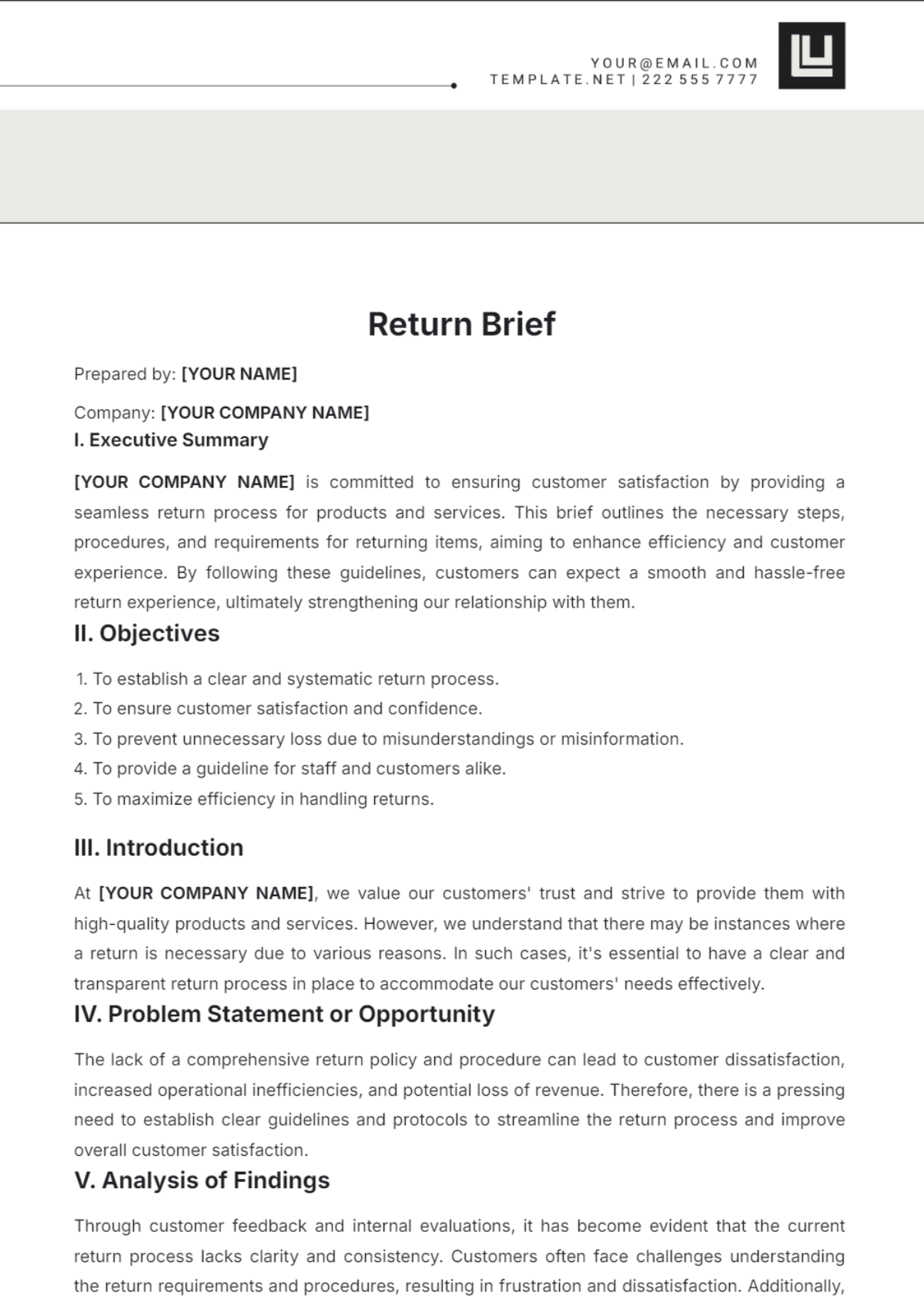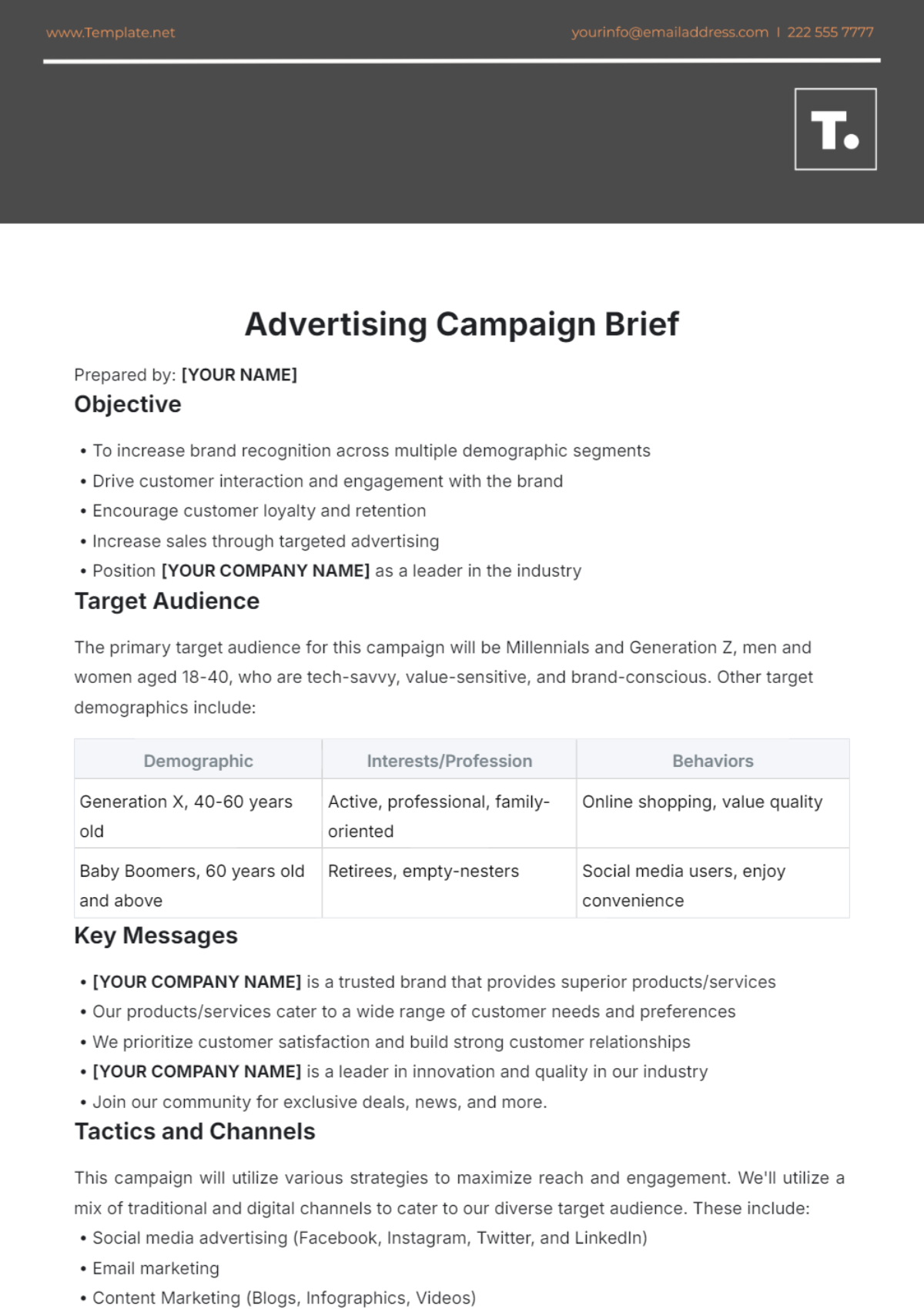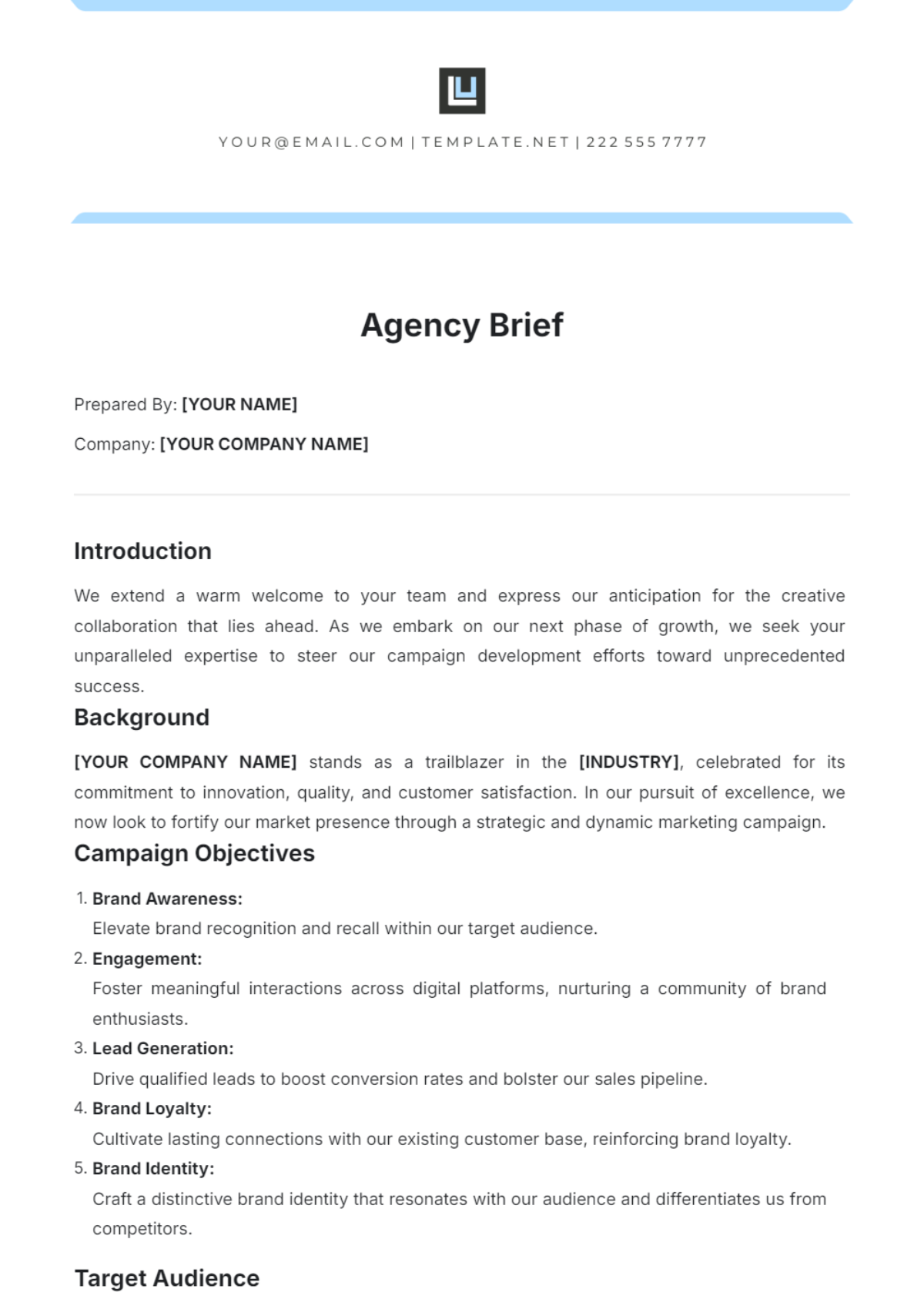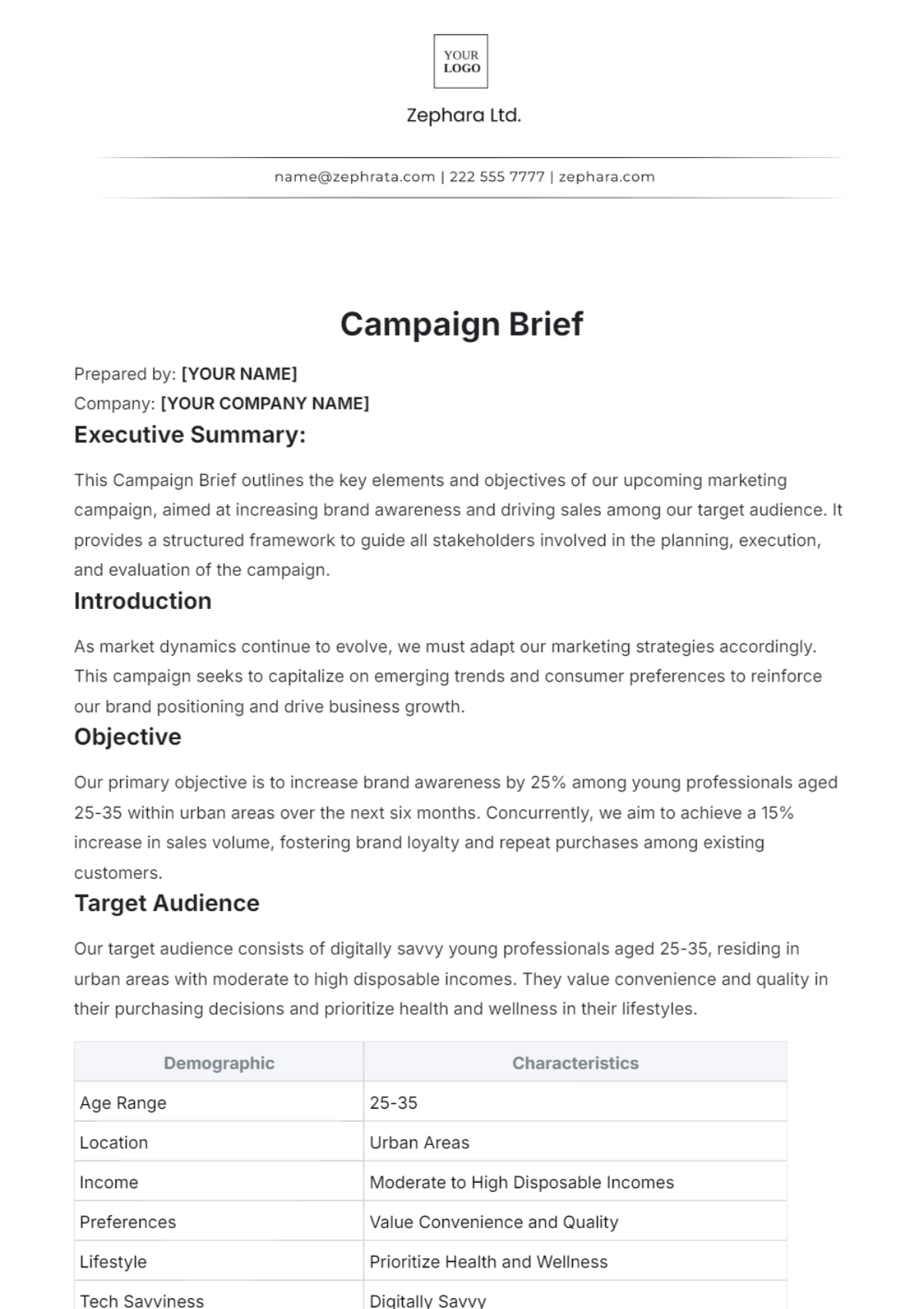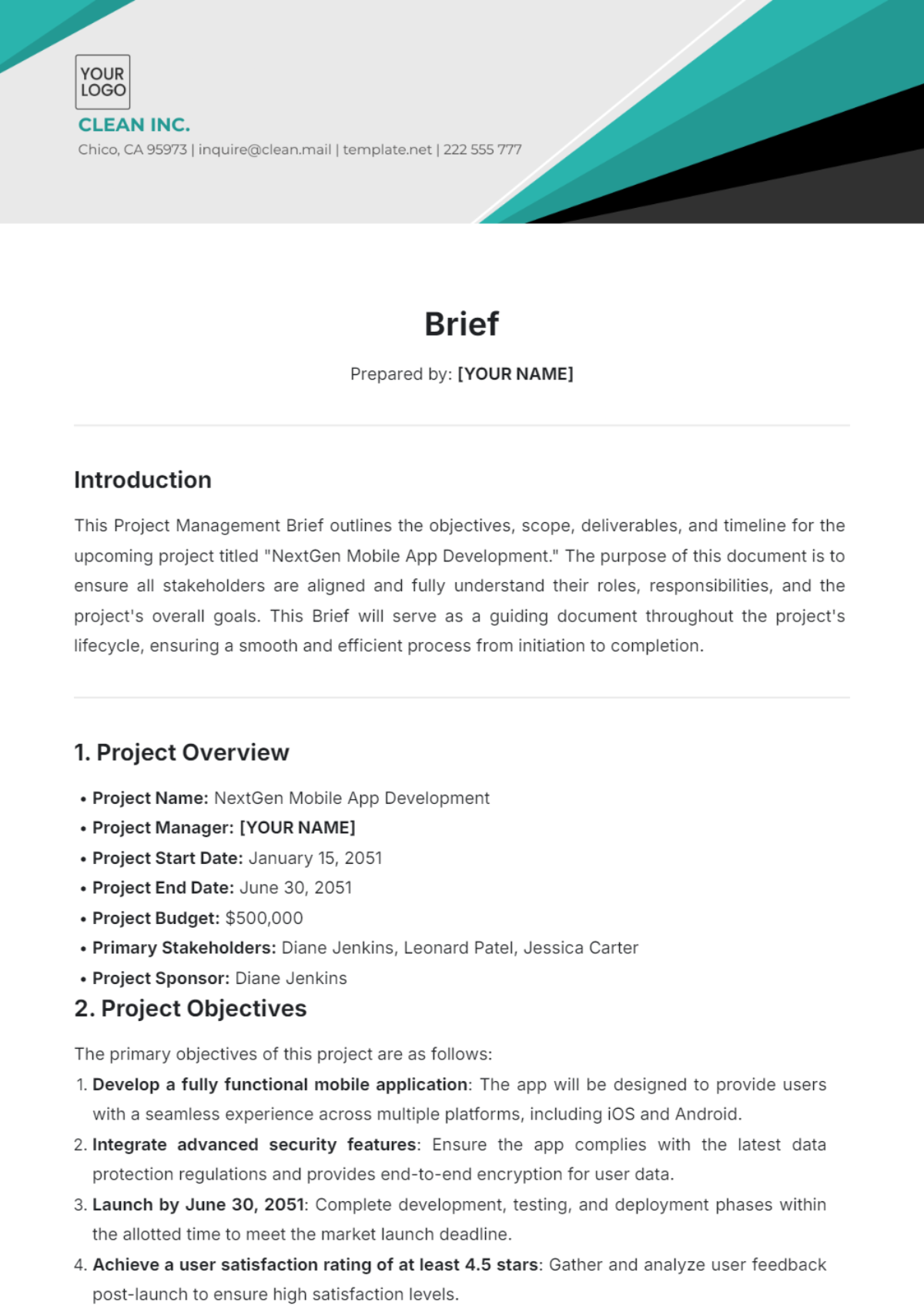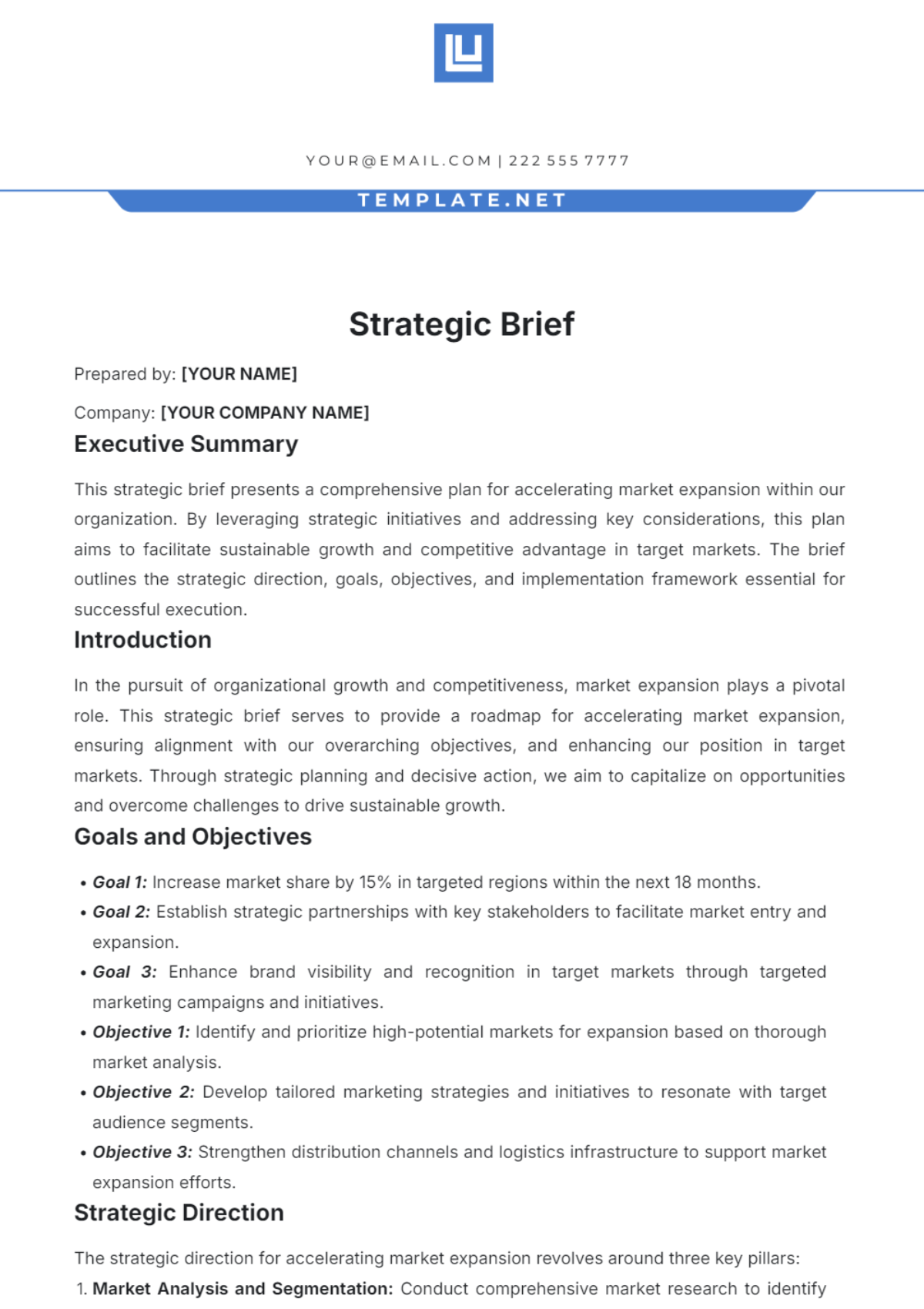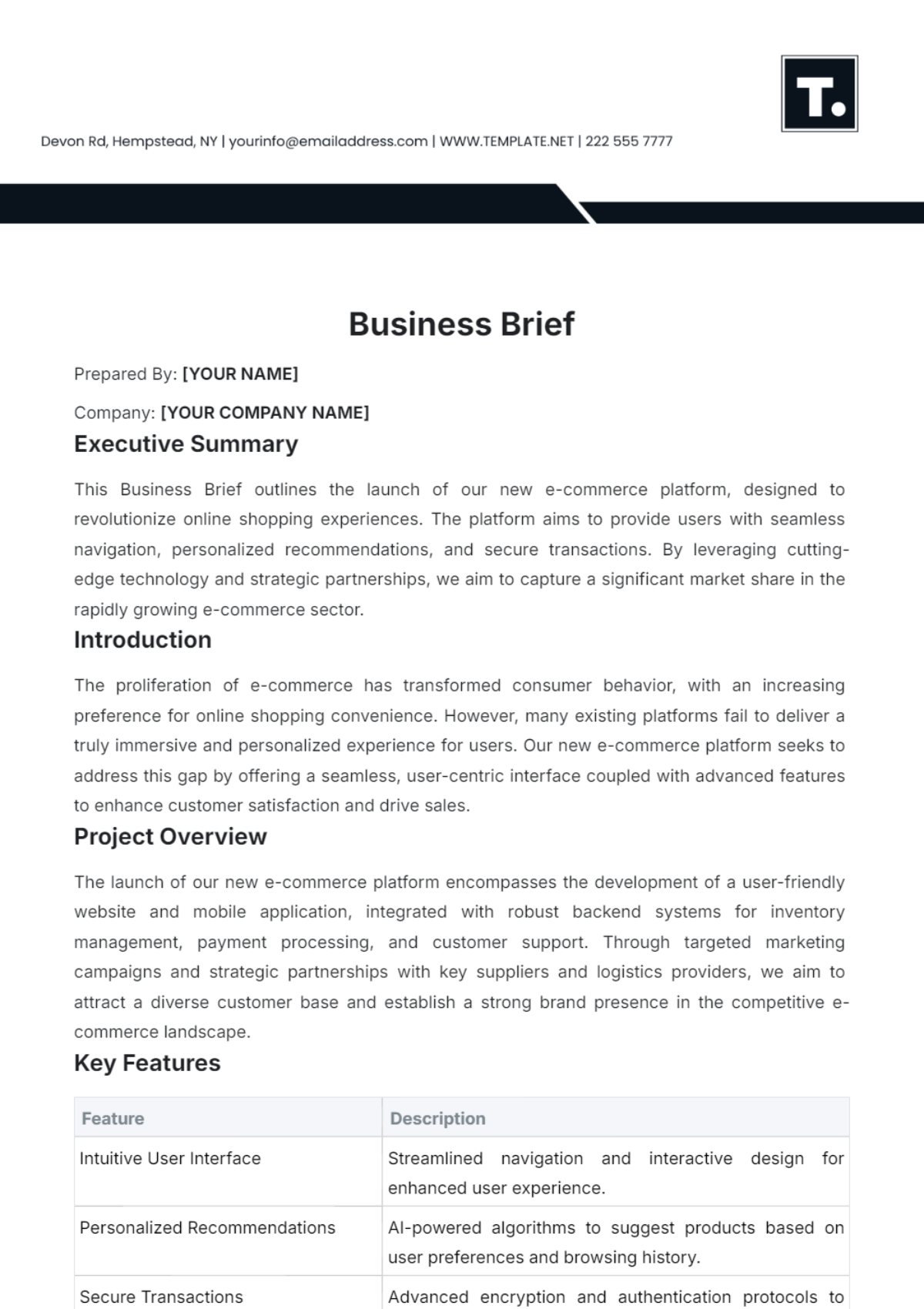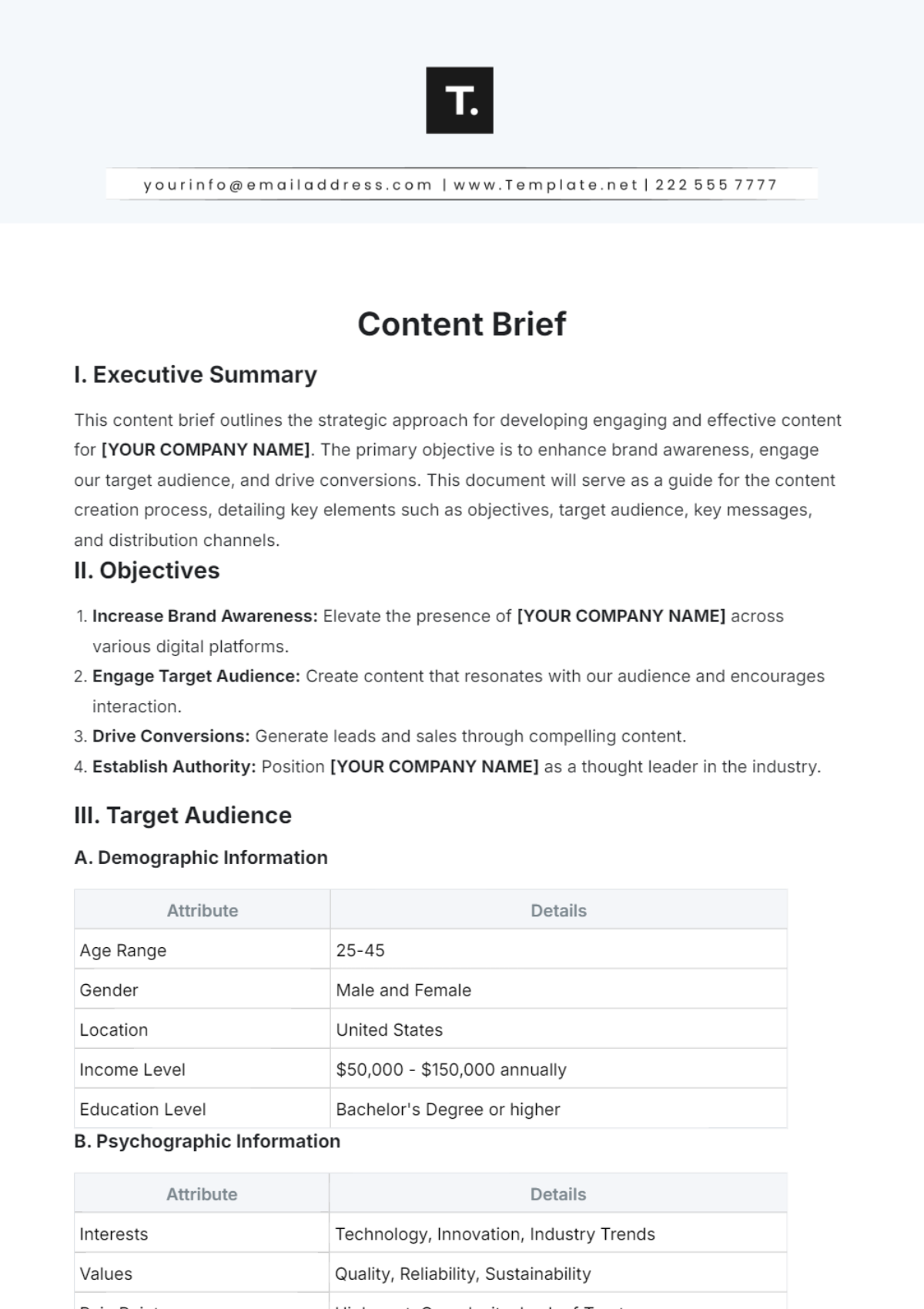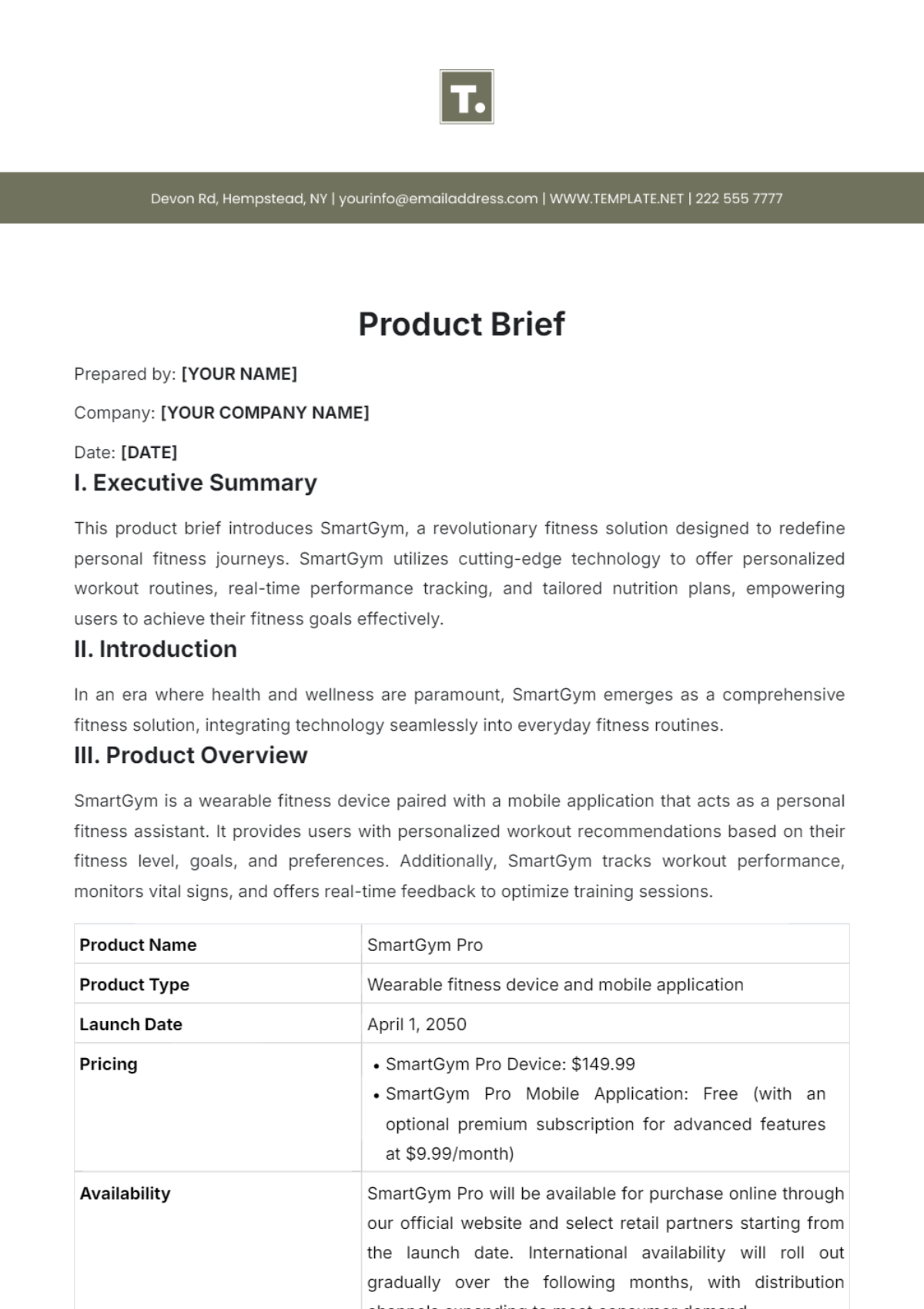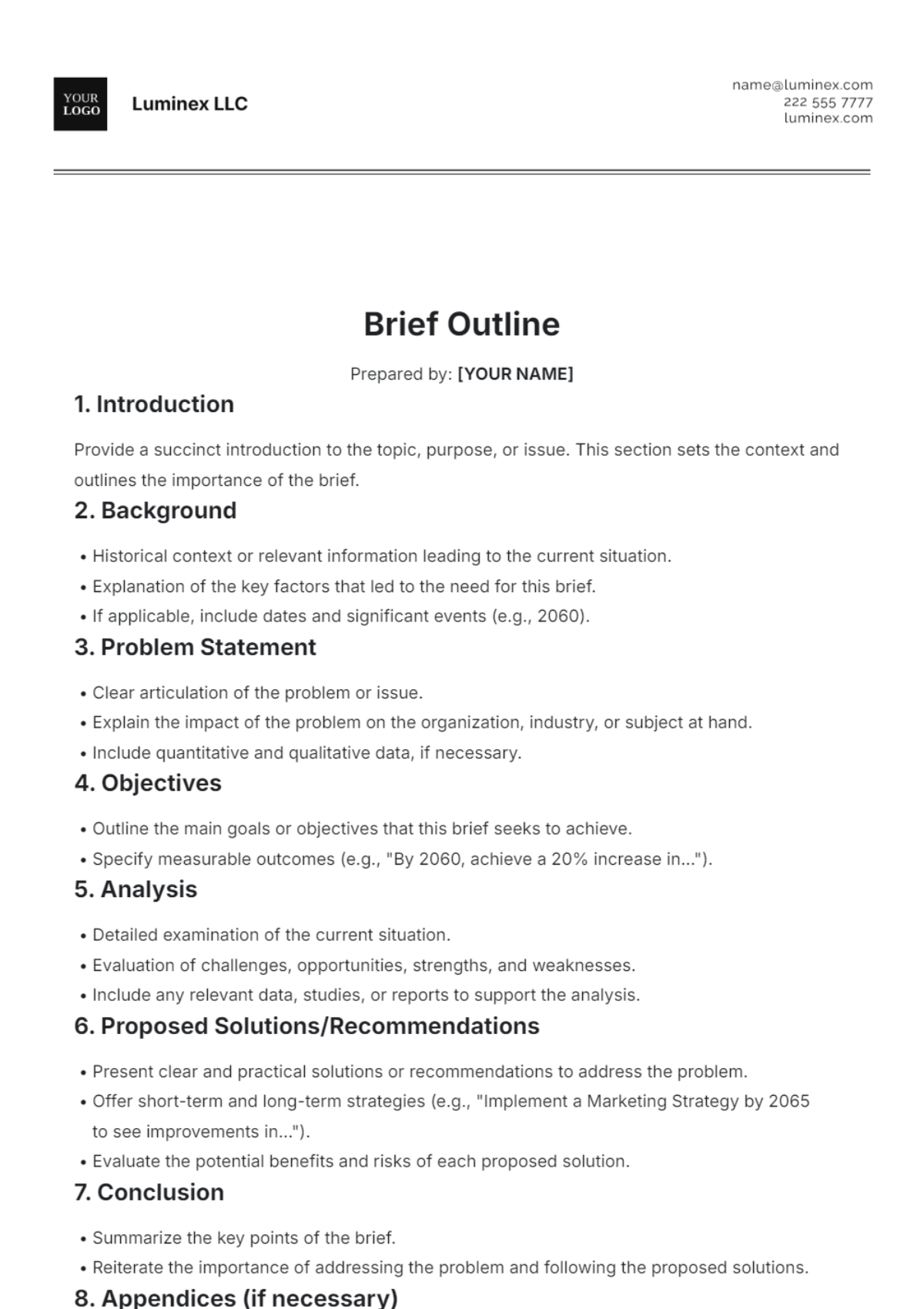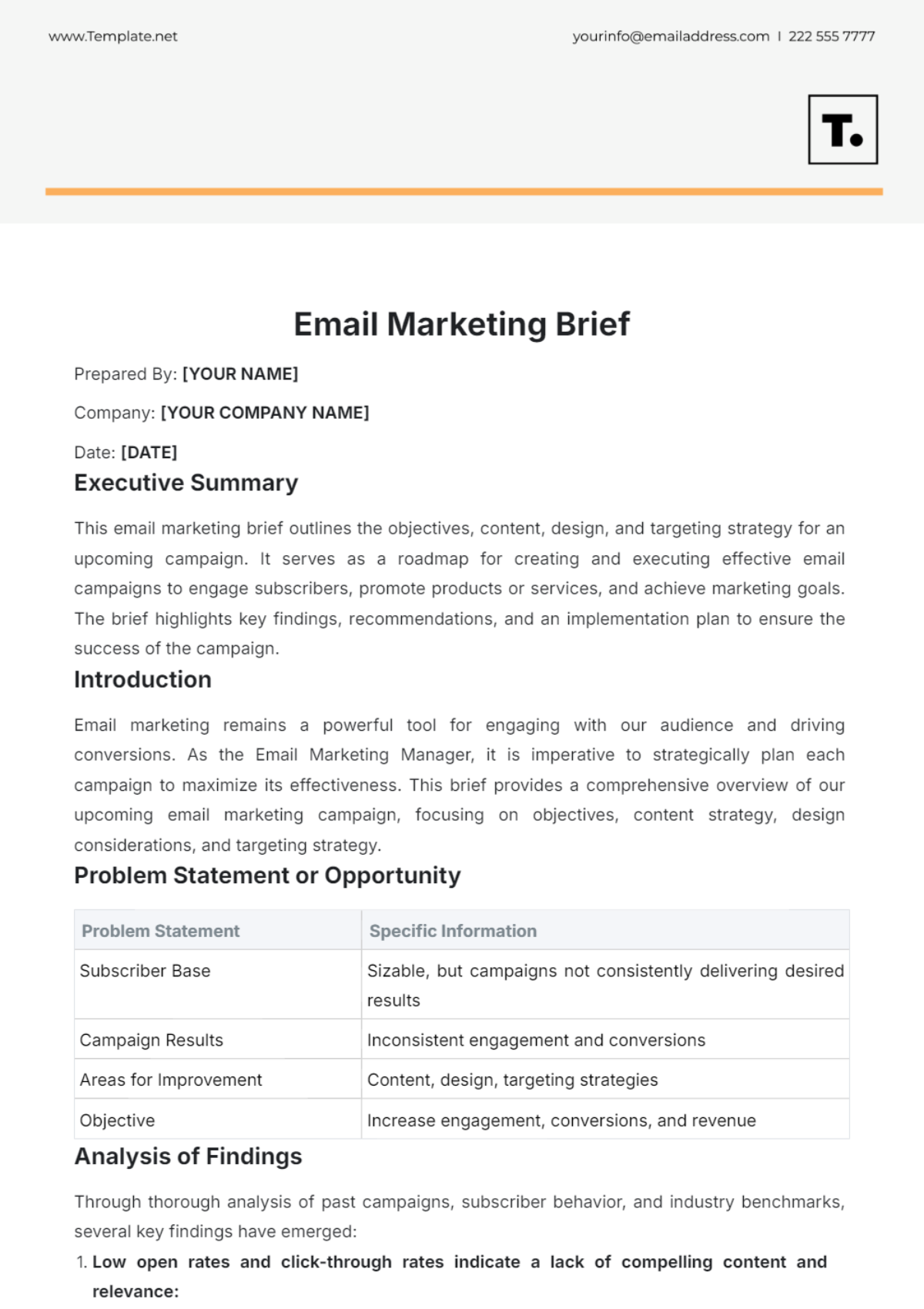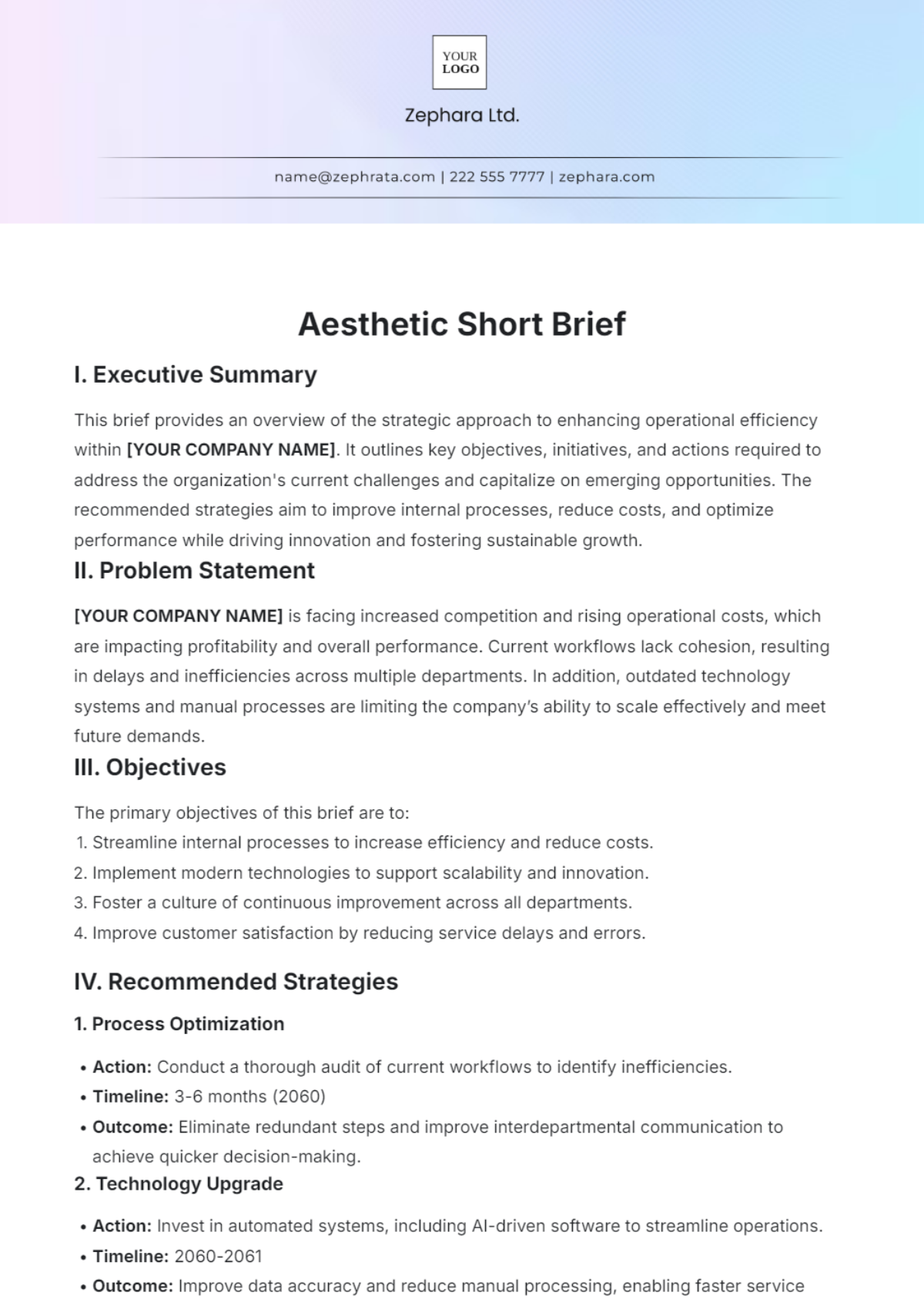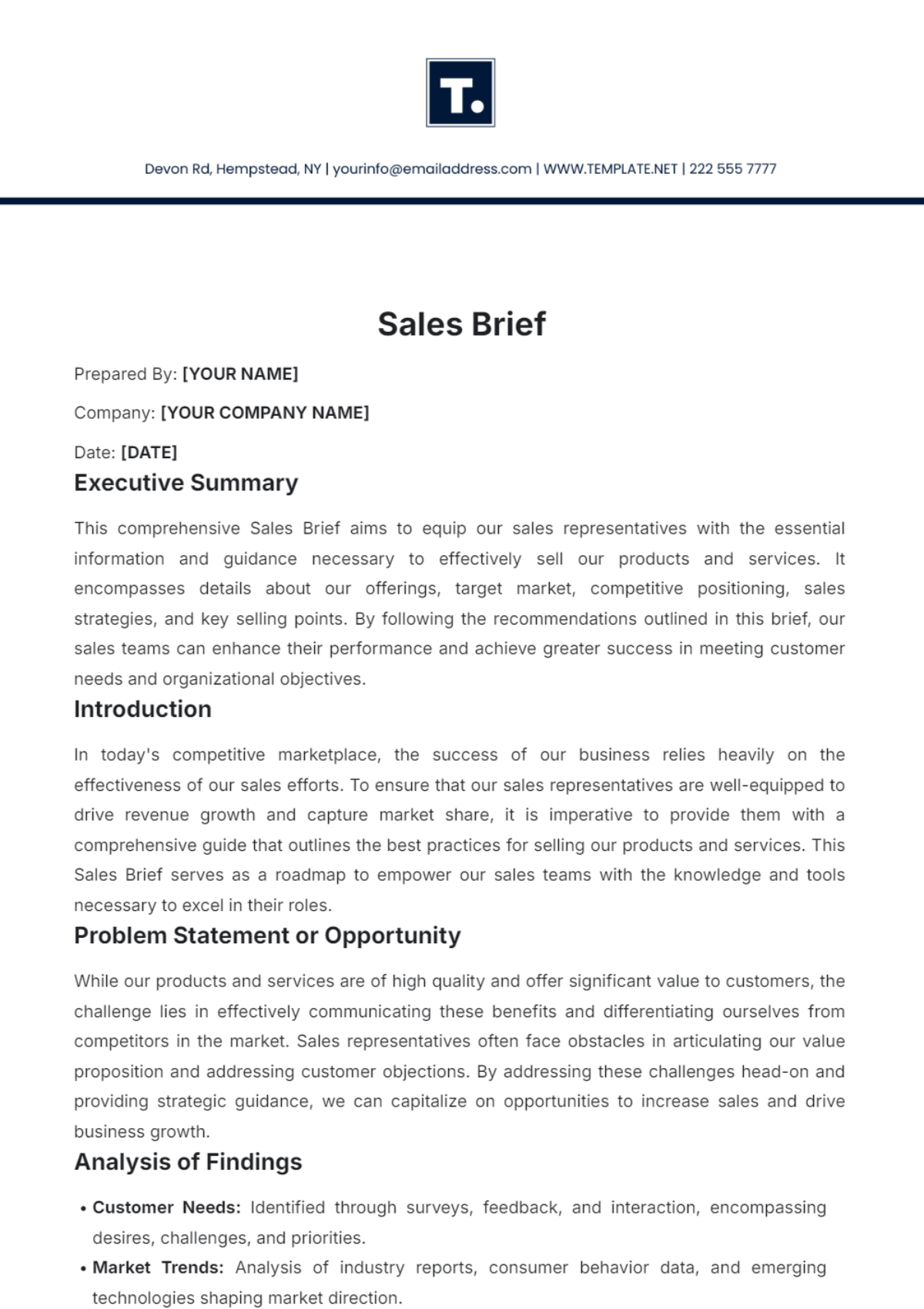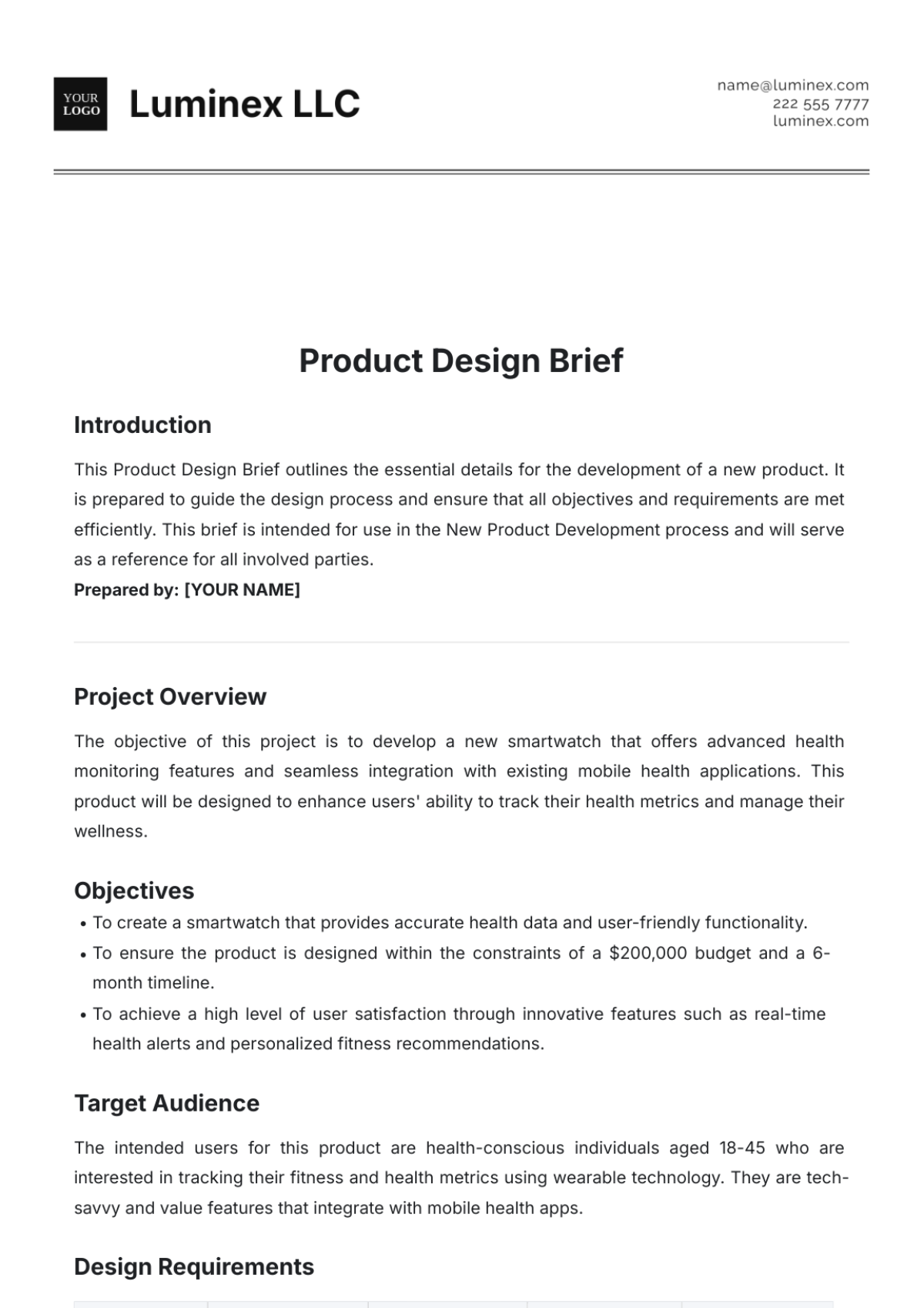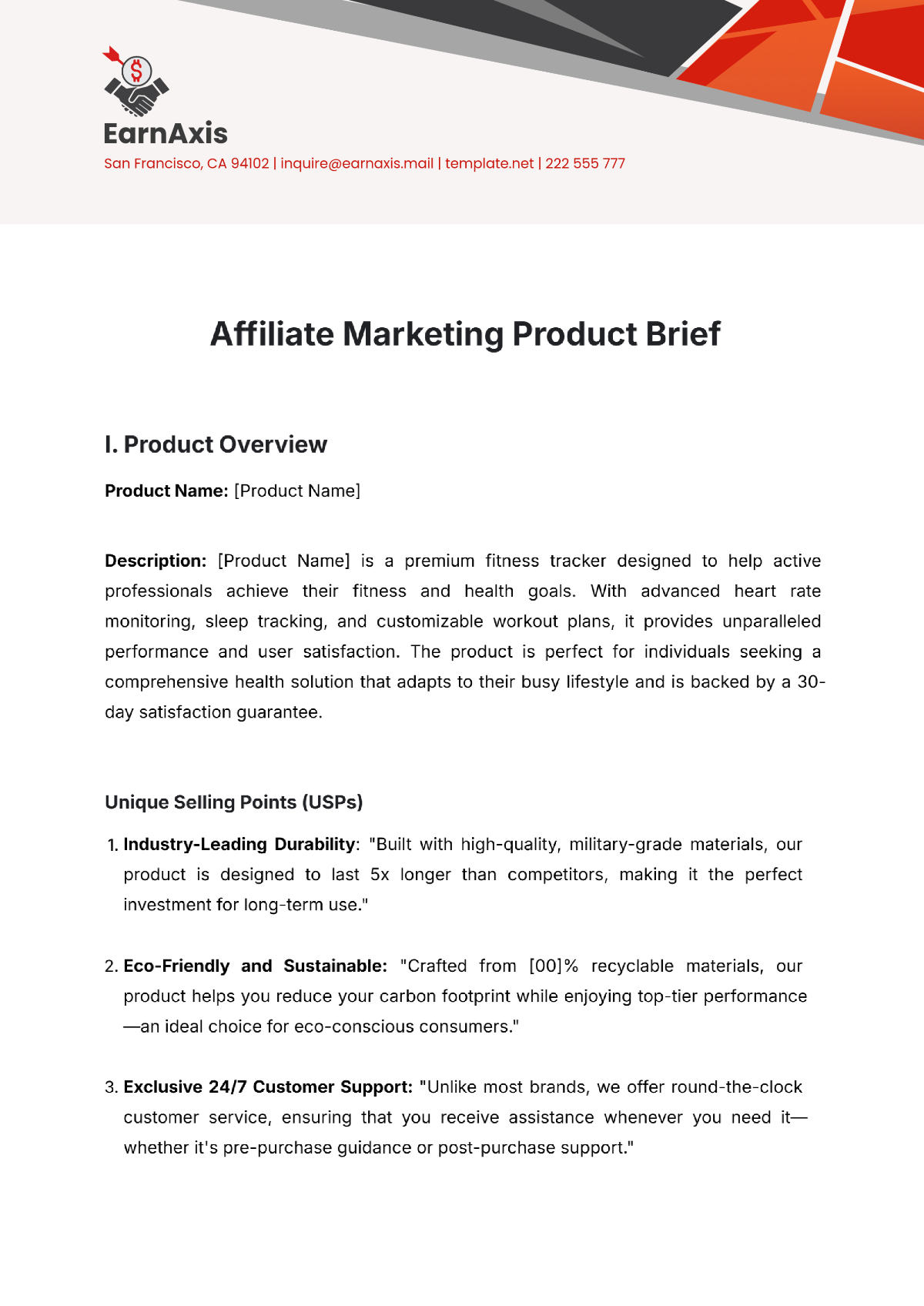Diet and Nutritional Brief
Prepare by: [Your Name] for [Your Company Name]
Introduction
In today's fast-paced world, where dietary choices abound and nutritional information can be overwhelming, understanding the basics of nutrition is crucial for maintaining optimal health. This diet and nutritional brief offers a concise yet comprehensive overview of key concepts in nutrition, ranging from the roles of macronutrients and micronutrients to the principles of energy balance and weight management. By exploring the fundamentals of nutrition and debunking common misconceptions, this brief aims to empower individuals with the knowledge and tools necessary to make informed dietary choices, cultivate healthy eating habits, and ultimately improve their overall well-being.
Purpose and Goals
The purpose of this diet and nutritional brief is to provide individuals with a comprehensive understanding of nutrition, empowering them to make informed dietary choices that promote optimal health and well-being. Through clear and concise explanations of key concepts in nutrition, this brief aims to demystify the complexities of dietary science and equip readers with practical strategies for achieving and maintaining a balanced diet.
The goals of this brief are as follows:
Education: To educate readers about the fundamentals of nutrition, including the roles of macronutrients, micronutrients, and their impact on overall health and wellness. By increasing awareness and understanding of nutritional principles, individuals can make more informed decisions regarding their dietary habits.
Empowerment: To empower individuals to take control of their health through mindful eating and informed food choices. By providing evidence-based information and practical tips, this brief aims to empower readers to make positive changes to their diets that align with their personal preferences and goals.
Promotion of Health: To promote the importance of a balanced diet in supporting overall health and well-being. By emphasizing the benefits of consuming a variety of nutrient-dense foods and maintaining energy balance, this brief seeks to encourage readers to adopt healthy eating patterns that contribute to long-term health outcomes.
Dispelling Myths and Misconceptions: To address common myths and misconceptions surrounding nutrition and dietary trends. By providing accurate and up-to-date information, this brief aims to counter misinformation and empower readers to discern fact from fiction when it comes to nutrition-related advice.
Practical Guidance: To offer practical guidance and tips for incorporating nutritious foods into everyday meals and snacks. By providing actionable strategies for meal planning, grocery shopping, and cooking, this brief aims to support readers in implementing sustainable dietary changes that promote health and well-being.
Overall, the purpose and goals of this diet and nutritional brief are to equip individuals with the knowledge, skills, and confidence they need to make healthy and sustainable dietary choices that enhance their quality of life. Through education, empowerment, and practical guidance, readers can embark on a journey toward improved health and well-being through nutrition.
Dietary Guidelines
Dietary guidelines serve as a blueprint for individuals seeking to achieve and maintain optimal health through their food choices. These guidelines are evidence-based recommendations developed by health authorities to promote healthy eating patterns and reduce the risk of chronic diseases. Here, we outline key principles and recommendations derived from dietary guidelines worldwide:
Balanced Macronutrients: Dietary guidelines emphasize the importance of consuming a balanced mix of macronutrients, including carbohydrates, proteins, and fats. Carbohydrates should primarily come from whole grains, fruits, vegetables, and legumes, while proteins can be sourced from lean meats, poultry, fish, eggs, nuts, and seeds. Healthy fats, such as those found in olive oil, avocados, and fatty fish, should also be included in moderation.
Variety and Moderation: Variety is encouraged within food groups to ensure adequate intake of essential nutrients and phytochemicals. Moderation is key, as excessive consumption of any single food or nutrient can lead to imbalances and health issues. A diverse diet composed of different foods from all food groups is recommended to meet nutrient needs and promote overall health.
Fruits and Vegetables: Dietary guidelines universally advocate for increased consumption of fruits and vegetables due to their rich nutrient content and potential health benefits. These foods are high in vitamins, minerals, fiber, and antioxidants, which are essential for maintaining health and reducing the risk of chronic diseases such as heart disease, stroke, and certain cancers.
Whole Grains: Whole grains, such as brown rice, quinoa, oats, and whole wheat, are preferred over refined grains due to their higher fiber content and superior nutritional profile. Dietary guidelines recommend replacing refined grains with whole grains whenever possible to support digestive health, regulate blood sugar levels, and reduce the risk of obesity and related conditions.
Lean Protein Sources: Lean protein sources, including lean meats, poultry, fish, eggs, legumes, and tofu, are recommended for their high-quality protein content and lower saturated fat content. Consumption of processed meats and high-fat animal products should be limited to reduce the risk of cardiovascular disease and other health problems associated with excessive saturated fat intake.
Healthy Fats: Healthy fats, such as those found in nuts, seeds, avocados, and fatty fish, play a crucial role in supporting heart health, brain function, and overall well-being. Dietary guidelines advise replacing saturated and trans fats with unsaturated fats whenever possible to improve lipid profiles and reduce the risk of cardiovascular disease.
Limit Added Sugars and Sodium: Excessive consumption of added sugars and sodium is associated with various health problems, including obesity, type 2 diabetes, hypertension, and heart disease. Dietary guidelines recommend limiting the intake of foods and beverages high in added sugars and sodium, such as sugary drinks, processed snacks, and salty foods, to promote better health outcomes.
Hydration: Adequate hydration is essential for overall health and well-being. Dietary guidelines recommend consuming water as the primary beverage choice throughout the day and limiting the intake of sugar-sweetened beverages, caffeinated drinks, and alcohol. Staying hydrated supports proper bodily functions, helps maintain energy levels, and aids in digestion and nutrient absorption.
Physical Activity: In addition to dietary recommendations, dietary guidelines often emphasize the importance of regular physical activity for overall health and weight management. Engaging in regular exercise, such as brisk walking, cycling, swimming, or strength training, is essential for maintaining a healthy body weight, reducing the risk of chronic diseases, and promoting overall well-being.
By following dietary guidelines and incorporating these principles into daily food choices and lifestyle habits, individuals can support their health, reduce the risk of chronic diseases, and enjoy a higher quality of life. Consulting with healthcare professionals or registered dietitians can provide personalized guidance and support in implementing these recommendations to meet individual health goals.
Nutritional Recommendations
Achieving optimal health and well-being requires more than just filling up calories. It involves providing your body with the right balance of essential nutrients to support its various functions. Here are some key nutritional recommendations to consider:
Eat a Variety of Nutrient-Dense Foods: Aim to consume a diverse range of foods from all food groups, including fruits, vegetables, whole grains, lean proteins, and healthy fats. This ensures that you obtain a wide array of vitamins, minerals, antioxidants, and other essential nutrients necessary for overall health.
Focus on Whole Foods: Prioritize whole, minimally processed foods over highly processed and refined options. Whole foods, such as fruits, vegetables, whole grains, and lean proteins, are rich in nutrients and fiber, while processed foods often contain added sugars, unhealthy fats, and artificial additives.
Portion Control: Be mindful of portion sizes to avoid overeating and maintain a healthy weight. Use visual cues, such as comparing food portions to everyday objects or using smaller plates, to help regulate portion sizes and prevent excessive calorie intake.
Prioritize Plant-Based Foods: Plant-based foods, such as fruits, vegetables, legumes, nuts, and seeds, should form the foundation of your diet. These foods are rich in fiber, vitamins, minerals, and phytochemicals, which have been linked to numerous health benefits, including reduced risk of chronic diseases.
Limit Added Sugars: Minimize consumption of foods and beverages high in added sugars, such as sugary drinks, candies, desserts, and processed snacks. Excessive sugar intake has been associated with obesity, type 2 diabetes, heart disease, and other health problems.
Watch Your Salt Intake: Reduce consumption of high-sodium foods, such as processed meats, canned soups, salty snacks, and fast food. Excess sodium intake can contribute to high blood pressure, stroke, heart disease, and kidney problems. Opt for whole foods and use herbs, spices, and other flavorings to season your meals instead of salt.
Choose Healthy Fats: Include sources of healthy fats in your diet, such as avocados, nuts, seeds, olive oil, and fatty fish like salmon and mackerel. These fats are rich in omega-3 fatty acids and monounsaturated fats, which support heart health, brain function, and overall well-being.
Stay Hydrated: Drink plenty of water throughout the day to stay hydrated and support optimal bodily functions. Aim for at least 8 glasses of water per day, and adjust your intake based on factors like physical activity level, climate, and individual hydration needs.
Be Mindful of Alcohol Consumption: Limit alcohol intake to moderate levels, as excessive alcohol consumption can have detrimental effects on health. For adults, moderate drinking is generally defined as up to one drink per day for women and up to two drinks per day for men.
Practice Mindful Eating: Pay attention to your hunger and fullness cues, and eat mindfully without distractions. Chew your food slowly, savoring the flavors and textures, and stop eating when you feel satisfied, rather than overly full.
By incorporating these nutritional recommendations into your lifestyle, you can support your overall health and well-being, maintain a healthy weight, and reduce the risk of chronic diseases. Remember to consult with a healthcare professional or registered dietitian for personalized nutrition advice tailored to your individual needs and goals.
Meal Plans
Creating a meal plan can help ensure that you're getting the right balance of nutrients throughout the day. Here are two sample meal plans—one for a day with meat and dairy options, and another for a vegetarian day:
Breakfast | Lunch | Dinner | |
|---|---|---|---|
Balanced Meal Plan (Including Meat and Dairy) |
|
|
|
Vegetarian Balanced Meal Plan |
|
|
|
Tips for Creating Your Meal Plans:
Balance Macronutrients: Ensure each meal contains a balance of carbohydrates, proteins, and healthy fats to provide sustained energy and support overall health.
Incorporate Plenty of Fruits and Vegetables: Aim to include a variety of colorful fruits and vegetables in your meals to maximize nutrient intake and add flavor and texture.
Choose Whole Grains: Opt for whole grains like brown rice, quinoa, oats, whole grain bread, pasta, and couscous to increase fiber intake and promote satiety.
Include Lean Protein Sources: Incorporate lean protein sources such as poultry, fish, tofu, beans, lentils, and legumes to support muscle growth and repair.
Limit Processed Foods: Minimize the consumption of processed and packaged foods high in added sugars, unhealthy fats, and sodium, and focus on whole, minimally processed options instead.
Stay Hydrated: Drink plenty of water throughout the day and limit sugary drinks and excessive caffeine consumption.
Listen to Your Body: Pay attention to hunger and fullness cues, and adjust portion sizes accordingly to meet your individual needs.
Remember to personalize your meal plans based on your dietary preferences, nutritional needs, and lifestyle factors. Consulting with a registered dietitian can provide additional guidance and support in creating balanced and sustainable meal plans tailored to your specific goals.
Conclusion
In conclusion, prioritizing balanced nutrition is paramount for sustaining optimal health and vitality. By embracing a diet rich in whole, nutrient-dense foods while moderating intake of processed and sugary options, individuals can fuel their bodies with the essential nutrients needed for overall well-being. Emphasizing variety and portion control, along with staying hydrated and mindful of added sugars and sodium, serves as a foundation for promoting lifelong health. Through informed choices and ongoing commitment to wholesome eating habits, individuals can embark on a journey towards enhanced vitality, reduced risk of chronic diseases, and a greater sense of well-being.

